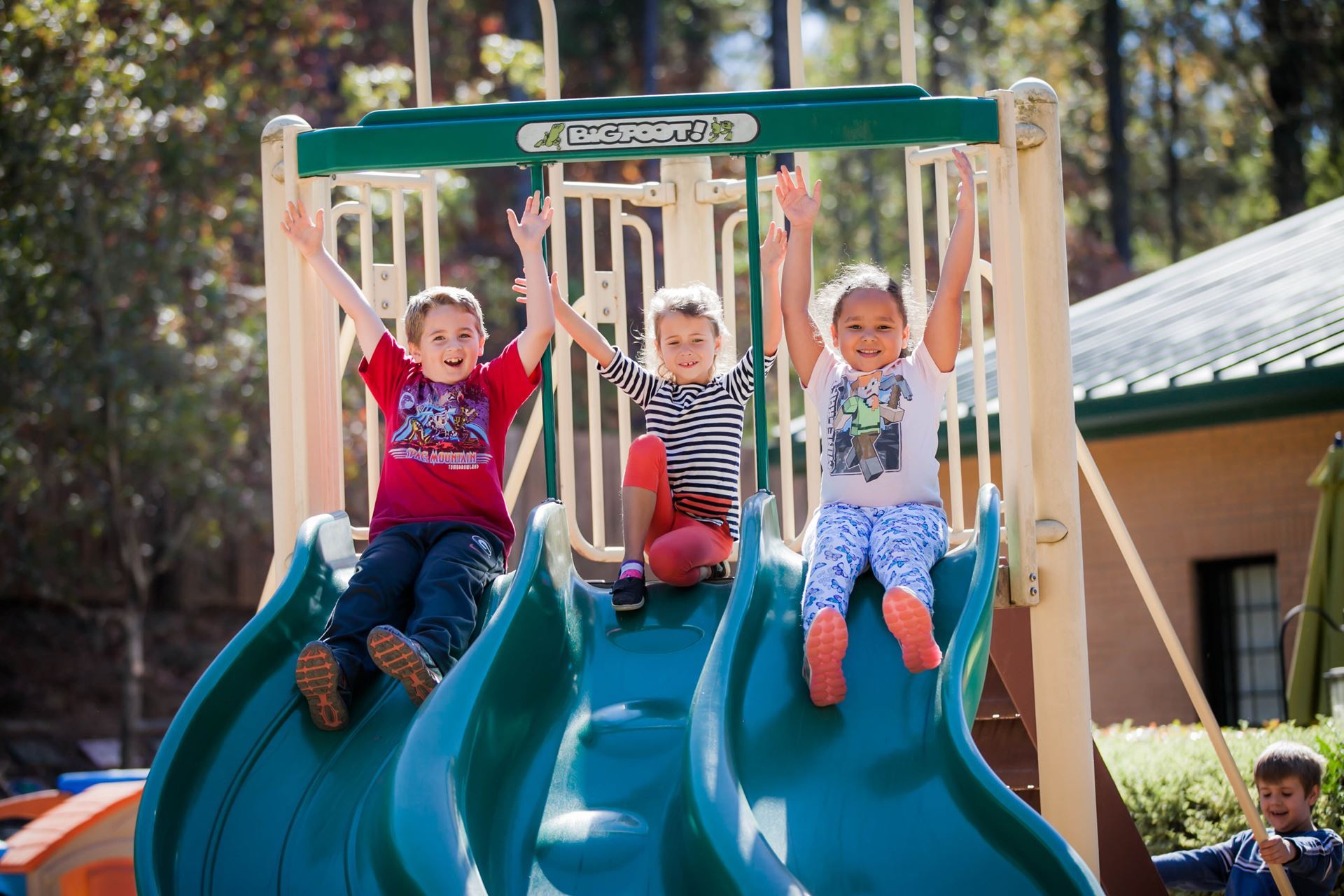Montessori is a scientifically designed system of education developed by Dr. Maria Montessori. Through her observations and work with the children of San Lorenzo, Rome, Italy, beginning in 1907, Dr. Montessori recognized that children taught themselves! In the same way that a child learns to walk and to speak their mother tongue, they also learn to read, write, and understand the world around them.
When children learn to walk, we support their natural development. Beginning around 6 months old, we hold them around their chest as they bounce on our legs, developing their leg muscles. We rearrange our furniture to give them many opportunities to pull themselves up to standing. Then, we rearrange again, moving the furniture further apart to encourage them to take a step. We provide them with push toys to help them develop balance. All of this leads to the child walking independently. We don’t teach them to walk; we provide an environment that encourages them to develop the muscles and skills that make up walking. They learn to walk all on their own.
Dr. Montessori recognized that it is not the adults’ job to teach the child. Instead, it is to prepare a beautiful, enticing environment that provides the child with developmentally interesting activities which encourage the development of independence, self-discipline, and the ability to focus and concentrate.
Montessori children thrive in our specially prepared classroom environments, learning from older children, mastering new skills, and recognizing and meeting their own individual needs. For more information, visit Resources section of our website.





